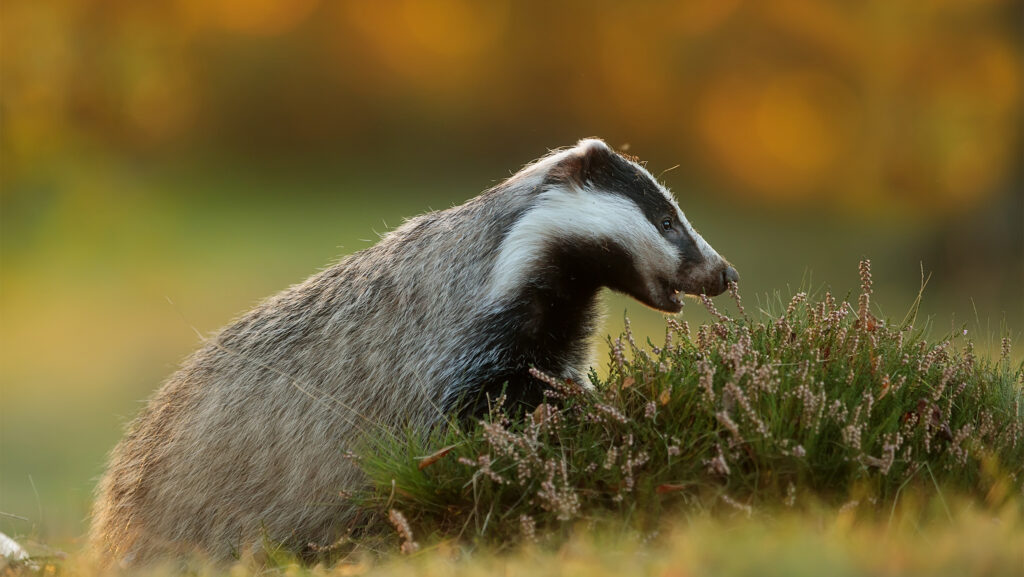Defra switch to vaccination in bid to end badger culling
 © Adobe Stock
© Adobe Stock Defra has announced it will be working on a new strategy to end the badger cull as part of ongoing efforts to eradicate bovine TB in England.
The strategy, announced by Defra on Friday 30 August, includes four main components.
These include: a national survey of badgers, a study of TB in badgers, deer and other wildlife, recruitment of a badger vaccinator “Field Force” to vaccinate badgers against TB and a study to investigate if badger vaccination reduces the incidence of TB in cattle.
See also: Labour drops plans for ‘targeted’ culling of badgers
Labour says it will end badger culling by the end of this parliament. However, there is no mention of any clear scale or timetable to deliver the badger vaccination plans.
Announcing the new TB strategy, Defra farming minister Daniel Zeichner said the cull “has taken a terrible toll on our badger populations”.
He added: “No more. Our comprehensive TB eradication package will allow us to end the badger cull by the end of this parliament and stop the spread of this horrific disease.”
In addition, Defra says it will accelerate work on the development of a cattle vaccine, which it says “is at the forefront of innovative solutions to help eradicate this disease”.
Cattle vaccine latest
The next stage of field trials, which started in 2021, will begin in the coming months, with a focus on the efficacy of the BCG cattle vaccine and the development of its own preferred “Diva” diagnostic tool, which can distinguish vaccinated from unvaccinated cattle.
The aim is to deliver an effective cattle TB vaccination strategy within the next few years to accelerate progress towards achieving officially TB free (OTF) status for England.
Farming organisations and industry commentators have expressed surprise that Defra has decided to go down the badger vaccination route, similar to that recommended in Prof Sir Charles Godfray’s 2018 independent bovine TB strategy review, with inadequate scientific justification.
NFU president Tom Bradshaw said the new strategy must draw on all methods to control bovine TB, especially where peer reviewed science has demonstrated benefits.
“Peer-reviewed scientific papers show that targeted badger culling provides success and has a part to play in a strategy where there is evidence that it is the right tool to contain and reduce TB,” he said.
Badgers ‘a distraction’ – Langton
However, ecology consultant Tom Langton believes the role of badgers is a distraction and that neither culling nor vaccination of the mammal is scientifically justified on the available evidence.
He said: “Badger vaccination numbers will increase to nearly 20,000 by 2026 and beyond without an immediate mass rollout [of vaccination].
“Defra has fallen behind the level of activity to achieve this and the change would be imposed with limited visible stakeholder or public engagement.”
Mr Langton has taken legal action against Defra with the aim to resolving the TB crisis in cattle and published numerous scientific papers on bovine TB in badgers and cattle and the Randomised Badger Culling Trial (RBCT) since 2019.
“We trust this process will not rush ahead and involve proper stakeholder engagement and not the secret Defra committees of the past,” he said.
Defra says the full strategy will be codesigned with farmers, vets, scientists and conservationists.
Further measures
Building on Prof Godfray’s independent strategy review, the strategy will consider a range of further measures including boosting cattle testing, reducing the spread of disease through cattle movements, and deploying badger vaccination on a wider, landscape scale.
Meanwhile, the government says it will proceed with proposals from its March bovine TB consultation and publish information on the ibTB platform about animal and herd-level TB risk online to better inform farmer stock purchasing decisions.
